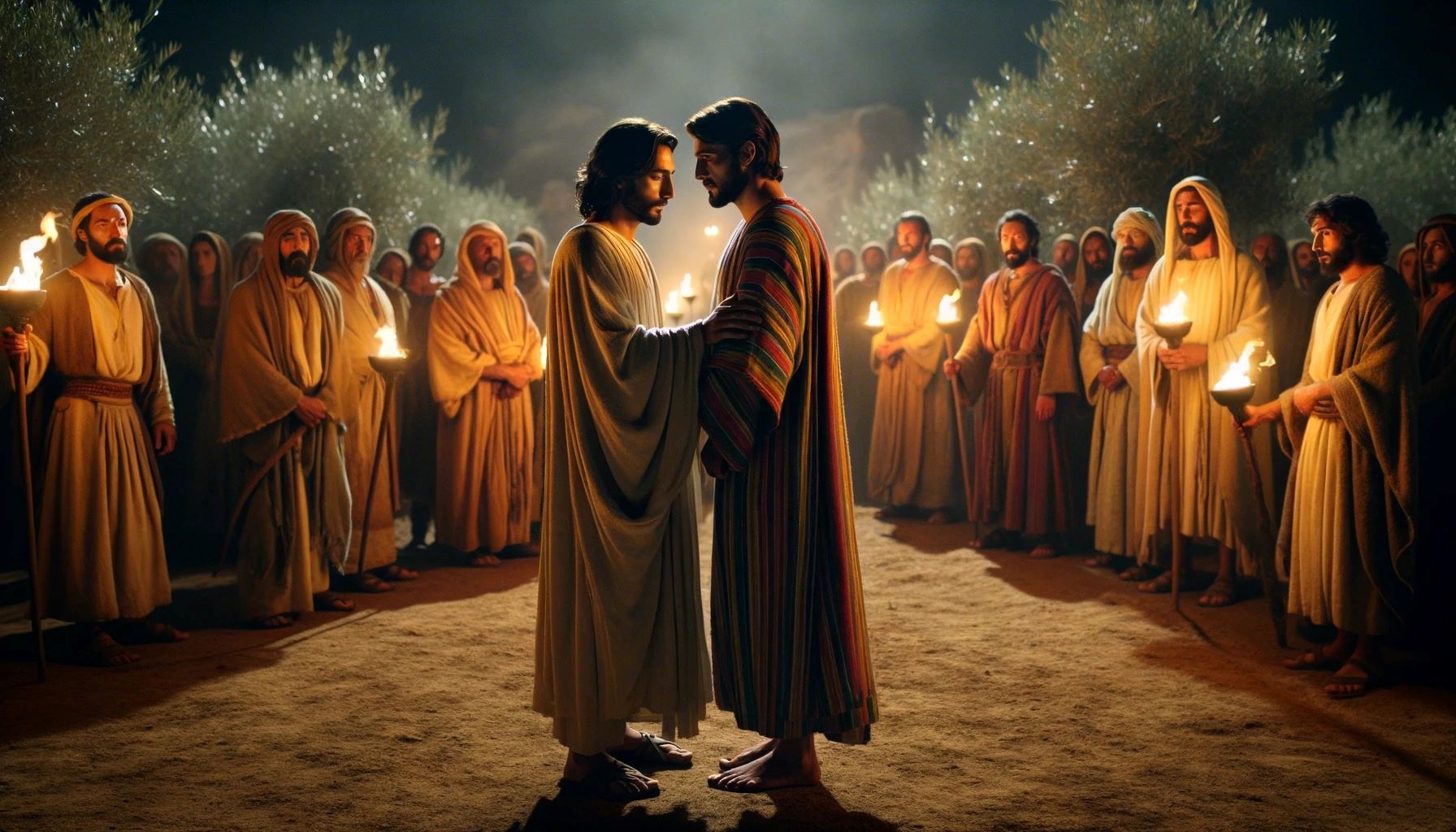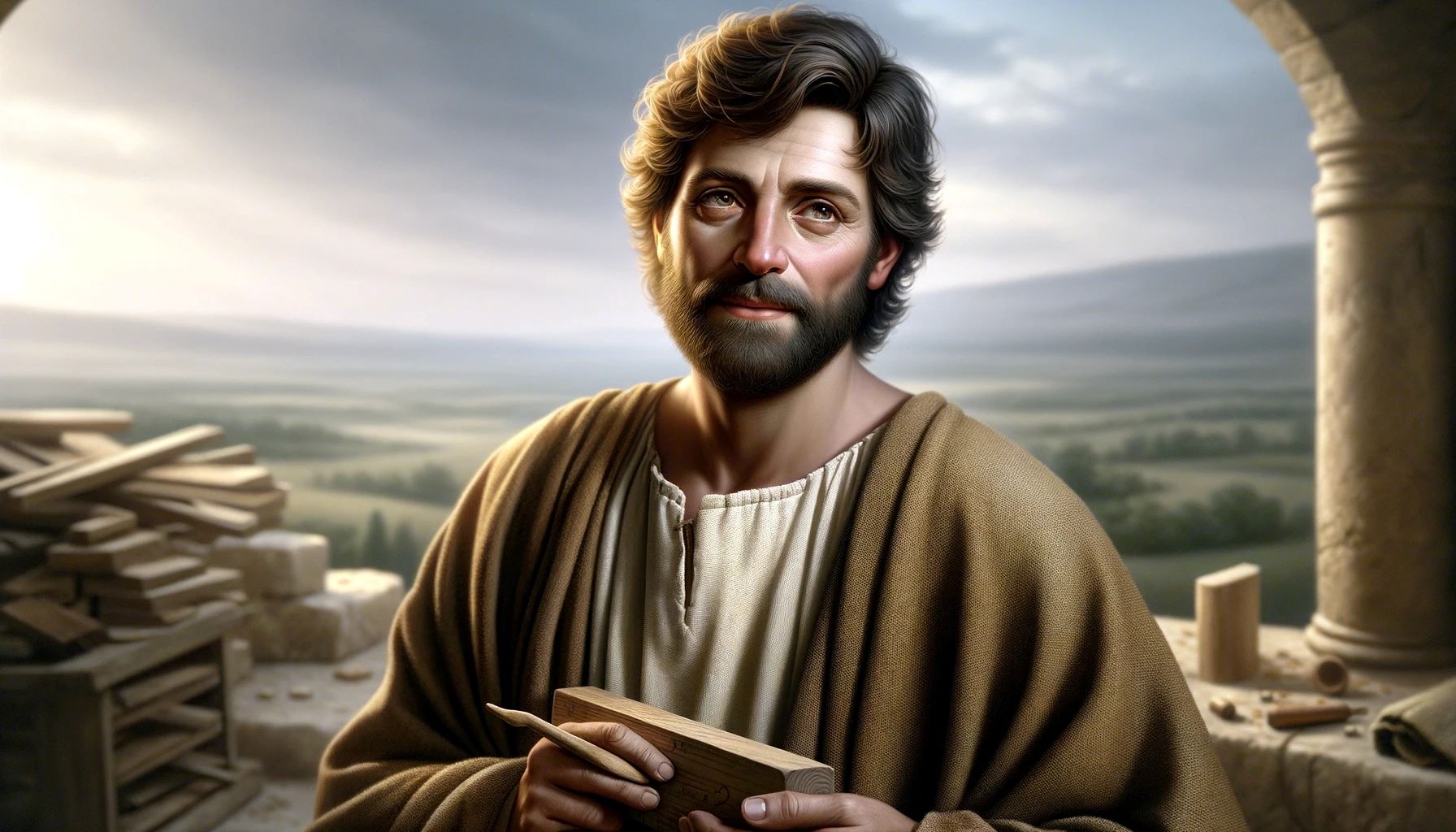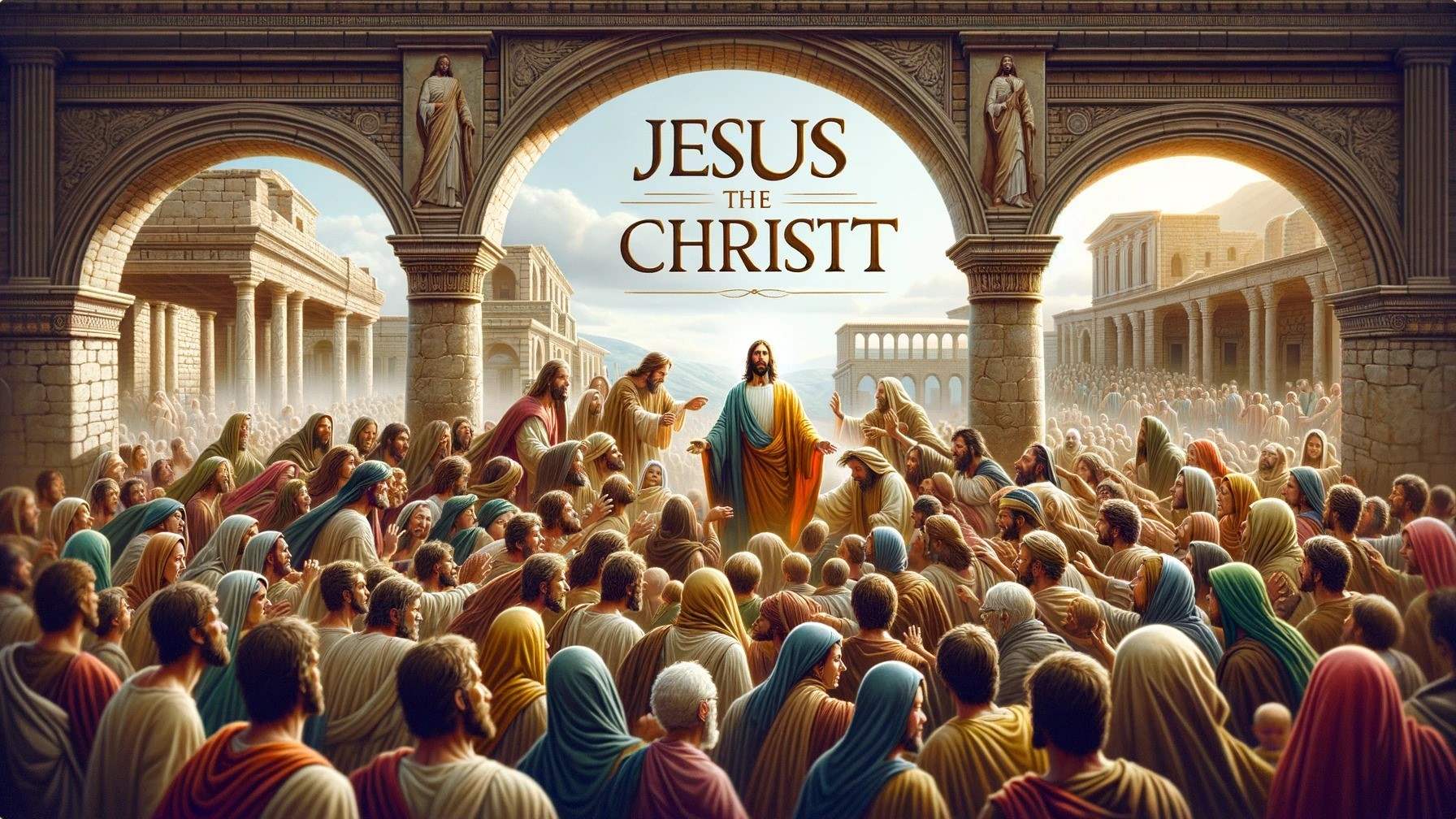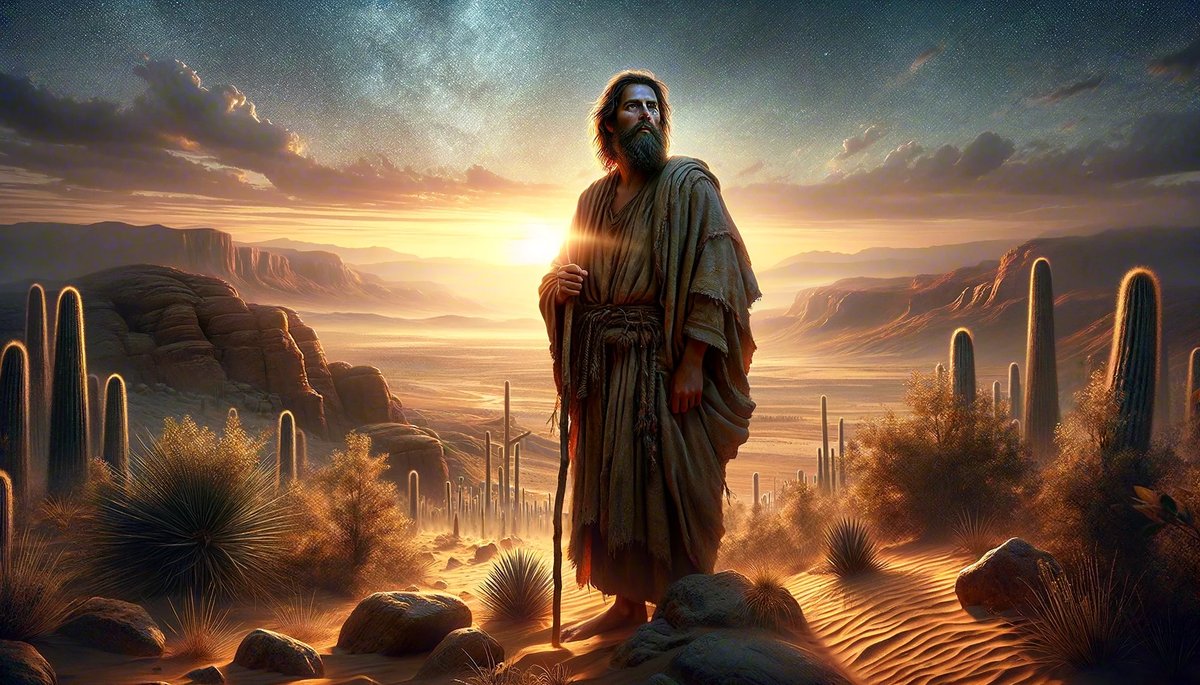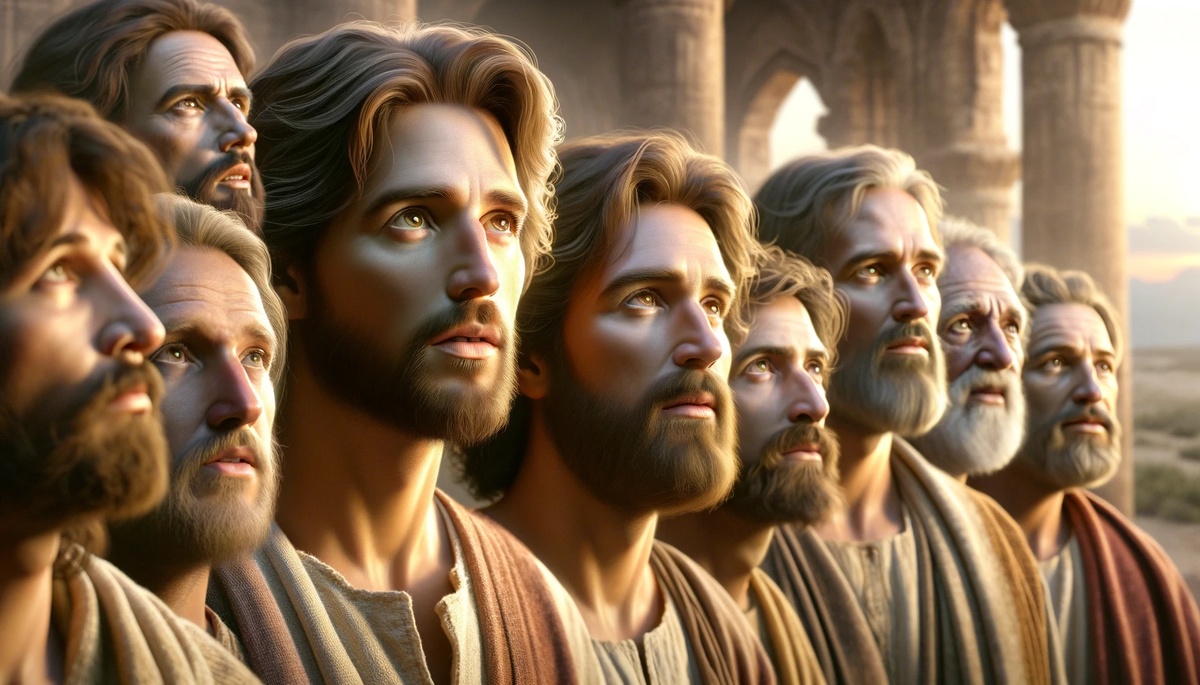Home>Christian Videos>Bible Stories>Who Came Before Jesus Christ
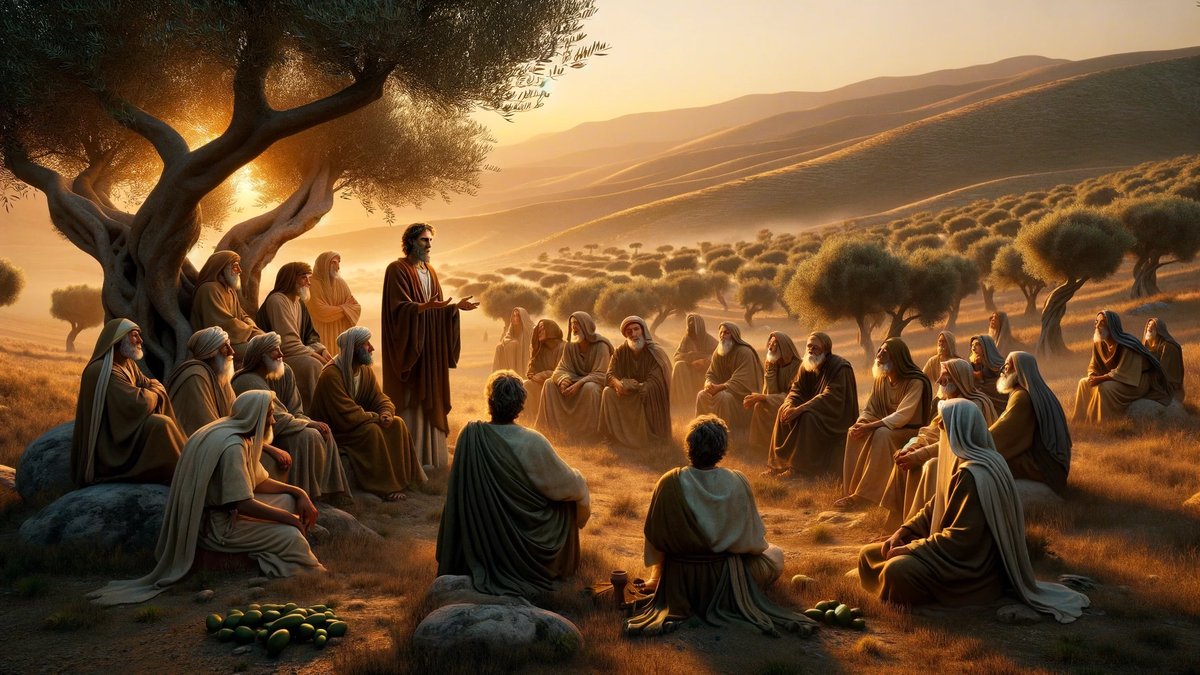

Bible Stories
Who Came Before Jesus Christ
Published: March 2, 2024
Peter Smith, Editorial Director at Christian.net, combines deep insights into faith, politics, and culture to lead content creation that resonates widely. Awarded for his contributions to religious discourse, he previously headed a major organization for religious communicators, enhancing dialogue on faith's societal impacts.
Discover the fascinating stories of figures who came before Jesus Christ in the Bible. Explore the rich history and teachings of these influential individuals. Unlock the secrets of the past with these captivating Bible stories.
(Many of the links in this article redirect to a specific reviewed product. Your purchase of these products through affiliate links helps to generate commission for Christian.net, at no extra cost. Learn more)
Table of Contents
The Predecessors of Jesus Christ
Before the time of Jesus Christ, there were several influential religious figures and prophets who laid the groundwork for his teachings and the development of Christianity. These predecessors played a significant role in shaping the religious and spiritual landscape of the time, and their teachings and philosophies had a lasting impact on the beliefs and practices that would eventually become associated with Christianity.
-
Abraham: Abraham is considered a foundational figure in the history of monotheistic religions. He is revered as the patriarch of the Israelites, Ishmaelites, Edomites, and Midianites, among others. His unwavering faith in God and his willingness to sacrifice his son Isaac are central themes in the religious traditions that followed, including Christianity.
-
Moses: Moses is a central figure in Judaism and is also recognized in Christianity and Islam. He is known for leading the Israelites out of slavery in Egypt and receiving the Ten Commandments from God. His role as a lawgiver and prophet laid the groundwork for ethical and moral principles that would influence the teachings of Jesus Christ.
-
John the Baptist: John the Baptist is a key figure in the New Testament and is considered a forerunner to Jesus Christ. His preaching and baptism of repentance were instrumental in preparing the way for the ministry of Jesus. John's emphasis on spiritual purification and the coming of the Messiah set the stage for the teachings and mission of Jesus Christ.
-
Isaiah: The prophet Isaiah, whose writings are found in the Hebrew Bible, is known for his prophecies about the coming of a messianic figure. His words, including the famous "Immanuel" prophecy, were interpreted by early Christians as foretelling the birth and mission of Jesus Christ.
-
Buddha: While not a direct predecessor in the traditional religious sense, the teachings of Siddhartha Gautama, known as the Buddha, had a profound impact on the spiritual and philosophical landscape of the ancient world. His emphasis on compassion, non-violence, and the pursuit of enlightenment resonated with many, and his influence may have indirectly contributed to the moral and ethical framework within which Jesus Christ would later teach.
These predecessors, among others, provided a rich tapestry of religious, philosophical, and ethical thought that set the stage for the emergence of Jesus Christ and the eventual spread of Christianity. Their teachings and influence continue to be recognized and revered within the context of Christian theology and the broader study of religious history.
Read more: Who Is Jesus Christ’s Mother
Ancient Religious Figures and Prophets
Ancient history is replete with influential religious figures and prophets whose teachings and actions left an indelible mark on the spiritual landscape of their time and beyond. These individuals, revered for their wisdom, piety, and connection to the divine, played a crucial role in shaping the beliefs and practices that would eventually pave the way for the emergence of Jesus Christ and the development of Christianity. Here are some of the notable ancient religious figures and prophets who contributed to the rich tapestry of spiritual thought and belief:
-
Abraham: Abraham, revered as the patriarch of multiple faith traditions, including Judaism, Christianity, and Islam, is celebrated for his unwavering faith in God and his pivotal role in the establishment of monotheistic belief. His willingness to heed the divine call and his demonstration of faith, notably in the near-sacrifice of his son Isaac, set a profound example of devotion and trust in the divine will.
-
Moses: Moses, a central figure in Judaism and a revered prophet in Christianity and Islam, is renowned for leading the Israelites out of bondage in Egypt and receiving the divine revelation of the Ten Commandments. His role as a lawgiver and conduit for God's guidance laid the foundation for ethical and moral principles that would resonate through the teachings of Jesus Christ.
-
John the Baptist: John the Baptist, a prominent figure in the New Testament, is recognized as a forerunner to Jesus Christ. His impassioned preaching and baptism of repentance were instrumental in preparing the hearts and minds of the people for the ministry of Jesus. John's emphasis on spiritual purification and his proclamation of the imminent arrival of the Messiah set the stage for the transformative message that Jesus would later impart.
-
Isaiah: The prophet Isaiah, whose writings are enshrined in the Hebrew Bible, is renowned for his profound prophecies regarding the coming of a messianic figure. His words, including the famous "Immanuel" prophecy, were interpreted by early Christians as foretelling the birth and mission of Jesus Christ, thus establishing a link between Isaiah's prophetic vision and the advent of Christianity.
-
Buddha: While not traditionally categorized as a precursor within the Abrahamic religious traditions, the teachings of Siddhartha Gautama, known as the Buddha, exerted a significant influence on the spiritual and philosophical milieu of the ancient world. His emphasis on compassion, non-violence, and the pursuit of enlightenment resonated with many, contributing to the moral and ethical framework within which Jesus Christ would later expound his teachings.
These ancient religious figures and prophets, among others, contributed to the diverse tapestry of religious thought and spiritual insight that laid the groundwork for the emergence of Jesus Christ and the subsequent development of Christianity. Their enduring influence continues to be acknowledged and revered within the context of religious scholarship and the ongoing exploration of spiritual history.
Historical Context of Jesus Christ's Time
The historical context of Jesus Christ's time provides crucial insights into the societal, political, and religious dynamics that shaped the environment in which Jesus lived and carried out his ministry. Understanding the historical backdrop of first-century Judea and the broader Roman Empire is essential for comprehending the challenges, influences, and opportunities that Jesus encountered as he disseminated his teachings and confronted the prevailing religious and cultural norms.
-
Roman Occupation: During the time of Jesus, Judea was under the dominion of the Roman Empire, which exerted significant political and military control over the region. The presence of Roman governance, with its accompanying taxation and enforcement of imperial law, engendered a climate of social and political tension among the Jewish populace. This occupation also influenced the expectations and perceptions of the anticipated Messiah, as many envisioned a deliverer who would liberate them from Roman rule.
-
Jewish Religious Landscape: The religious milieu of Jesus' era was characterized by a diverse tapestry of beliefs, sects, and religious authorities. The Pharisees, Sadducees, Essenes, and Zealots, among others, represented distinct religious and ideological factions within Judaism, each with its interpretations of Jewish law, customs, and expectations regarding the awaited Messiah. Jesus navigated this complex religious landscape, engaging in debates, challenging traditional interpretations, and offering his distinctive teachings.
-
Messianic Expectations: The concept of the Messiah, rooted in Jewish prophetic tradition, held profound significance in the collective consciousness of the Jewish people. The anticipation of a messianic figure who would restore the Davidic kingdom, usher in an era of peace and righteousness, and fulfill the eschatological promises was widespread. Jesus' ministry and claims regarding his identity as the Messiah intersected with these fervent expectations, sparking both fervent support and vehement opposition.
-
Cultural Diversity: The region of Judea was marked by cultural diversity, with interactions and influences from Hellenistic, Roman, and indigenous Jewish traditions. This cultural amalgamation contributed to a dynamic social fabric, encompassing varying languages, customs, and religious practices. Jesus' teachings and parables often resonated with this diverse audience, addressing universal themes while acknowledging the cultural tapestry within which he ministered.
-
Role of Synagogues and Temple: Synagogues served as centers for communal worship, education, and social gatherings, fostering a sense of religious identity and communal solidarity. The Temple in Jerusalem, a focal point of Jewish religious life, held immense religious and symbolic significance. Jesus' interactions in these settings, his teachings on ethical conduct and spiritual devotion, and his encounters with religious authorities within these sacred spaces are integral to understanding his ministry within the Jewish religious framework.
The historical context of Jesus Christ's time provides a multifaceted backdrop against which his life, teachings, and interactions unfolded. By delving into the complexities of Roman occupation, the diverse religious landscape, messianic expectations, cultural influences, and the role of religious institutions, we gain a deeper appreciation of the challenges and opportunities that shaped the narrative of Jesus' transformative impact within his historical milieu.
Influential Philosophers and Teachers
The era preceding the advent of Jesus Christ was marked by the profound influence of various philosophers and teachers whose ideas and principles permeated the intellectual and spiritual landscape of the time. These influential figures, renowned for their philosophical insights, ethical teachings, and spiritual guidance, contributed to the rich tapestry of thought that would intersect with and, in some cases, foreshadow the teachings of Jesus Christ. Here are some of the influential philosophers and teachers whose impact resonated within the historical milieu preceding the emergence of Christianity:
-
Socrates: The philosophical legacy of Socrates, an iconic figure in ancient Greek thought, reverberated throughout the Hellenistic world and beyond. His emphasis on ethical inquiry, the pursuit of wisdom, and the examination of one's beliefs laid the groundwork for the development of Western philosophical traditions. Socrates' commitment to questioning assumptions and seeking truth resonated with themes that would later emerge in the teachings of Jesus Christ, particularly in the context of moral introspection and the pursuit of spiritual understanding.
-
Plato: As a student of Socrates, Plato furthered the philosophical discourse through his dialogues and writings, exploring metaphysical, ethical, and political dimensions of human existence. His allegory of the cave, theory of forms, and reflections on justice and the soul contributed to the intellectual milieu that would inform subsequent philosophical and theological inquiries. The enduring impact of Platonic thought on Christian theology and the conceptualization of divine truth underscores the enduring relevance of his philosophical contributions.
-
Aristotle: Aristotle, a towering figure in ancient philosophy, delved into diverse areas of inquiry, including metaphysics, ethics, and logic. His systematic approach to understanding the natural world and human behavior laid the foundation for scholastic thought and theological reflection in later centuries. The influence of Aristotelian ethics and metaphysics on Christian thinkers, such as Thomas Aquinas, exemplifies the enduring resonance of his philosophical framework within the development of Christian thought.
-
Confucius: In the Eastern sphere, the teachings of Confucius, emphasizing ethical conduct, social harmony, and filial piety, exerted a profound influence on the cultural and moral fabric of ancient China. His emphasis on moral rectitude, social order, and the cultivation of virtuous character resonated with themes of ethical living and communal harmony that would find parallels in the ethical teachings of Jesus Christ.
-
Hillel the Elder: A prominent Jewish sage and scholar, Hillel the Elder's ethical maxims and teachings on compassion, humility, and ethical conduct left an indelible mark on Jewish ethical thought. His emphasis on the golden rule and the ethical imperative to love one's neighbor as oneself anticipated ethical principles that would later be central to the teachings of Jesus Christ.
The profound impact of these influential philosophers and teachers, spanning diverse cultural and philosophical traditions, underscores the interconnectedness of intellectual and spiritual currents that informed the historical milieu preceding the emergence of Jesus Christ. Their enduring influence continues to be recognized within the broader tapestry of human thought and ethical inquiry, enriching the ongoing dialogue between philosophical, ethical, and spiritual traditions.
Cultural and Spiritual Influences on Jesus Christ
The cultural and spiritual milieu in which Jesus Christ lived and carried out his ministry exerted profound influences on his teachings, interactions, and the development of early Christianity. These influences, stemming from the rich tapestry of Jewish traditions, Hellenistic thought, and the broader cultural dynamics of the ancient world, contributed to the formation of Jesus' worldview and the dissemination of his transformative message.
Read more: Who Came First: Christianity Or Catholicism
Jewish Religious Tradition
The Jewish religious tradition, with its emphasis on monotheism, covenantal relationship with God, prophetic anticipation of a messianic figure, and ethical precepts, provided the foundational backdrop for Jesus' teachings. His engagement with Jewish scriptures, the synagogue as a center of communal worship and instruction, and the ethical teachings of Jewish sages all shaped the contours of his ministry and the ethical framework within which he imparted his message of love, compassion, and moral rectitude.
Hellenistic Cultural Milieu
The pervasive influence of Hellenistic culture, characterized by philosophical inquiry, diverse religious practices, and linguistic diffusion, intersected with Jesus' ministry, particularly in the regions influenced by Greek thought. The use of Koine Greek as a lingua franca facilitated the dissemination of Christian teachings, while the philosophical currents of the time provided a backdrop for articulating the theological underpinnings of Christian faith, as evidenced in the writings of the New Testament.
Social and Economic Realities
The social and economic realities of first-century Judea, marked by disparities in wealth, societal stratification, and the challenges faced by marginalized communities, informed Jesus' teachings on social justice, compassion for the poor and oppressed, and the ethical imperative to care for the marginalized. His interactions with individuals from diverse social strata underscored his commitment to inclusivity and the affirmation of human dignity, transcending societal barriers.
Eschatological Expectations
The eschatological expectations prevalent in Jewish thought, centered on the anticipation of the coming kingdom of God, the resurrection of the dead, and the establishment of divine justice, provided a framework within which Jesus' teachings on the kingdom of God, the renewal of creation, and the fulfillment of prophetic promises resonated. His proclamation of the imminent arrival of God's reign and the call to repentance intersected with these eschatological hopes, offering a vision of transformative renewal and divine intervention.
Read more: Who Were Jesus Christ’s Siblings
Syncretic Influences
The cultural and spiritual syncretism evident in the ancient world, characterized by the blending of diverse religious and philosophical traditions, contributed to the reception of Jesus' teachings among individuals from varying cultural backgrounds. The universal themes of love, forgiveness, and spiritual renewal articulated in his message resonated with the broader human quest for meaning, transcendence, and ethical living, transcending cultural boundaries.
The cultural and spiritual influences on Jesus Christ, arising from the diverse tapestry of Jewish tradition, Hellenistic thought, social dynamics, eschatological expectations, and syncretic currents, underscore the interconnectedness of historical, cultural, and religious forces that shaped the emergence and dissemination of Christianity. These influences continue to be explored within the context of religious scholarship and the ongoing dialogue between diverse cultural and spiritual traditions.

